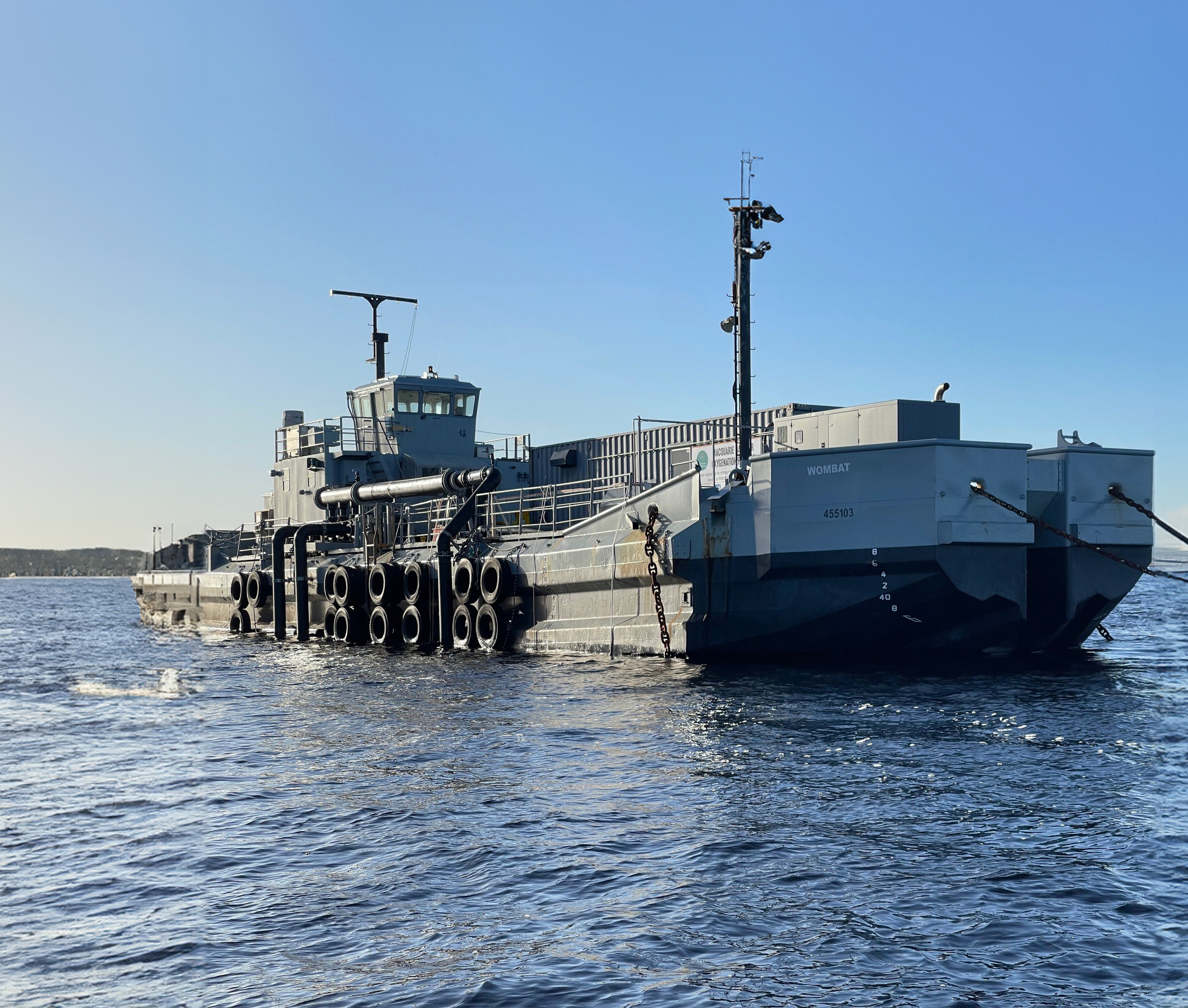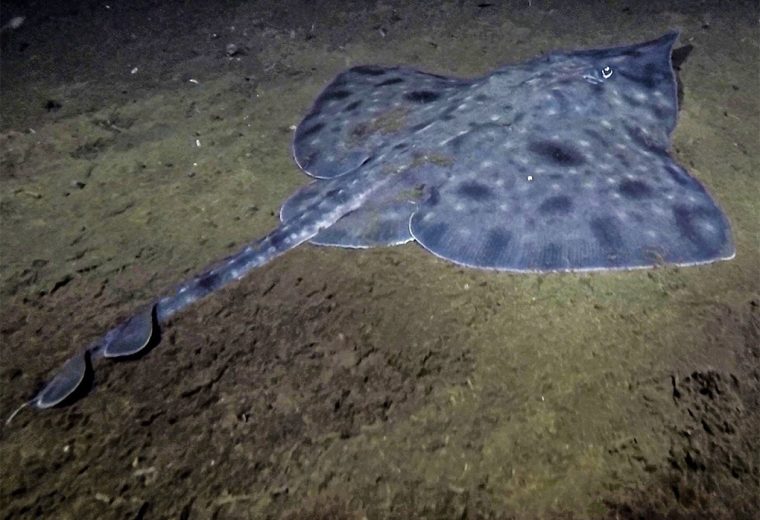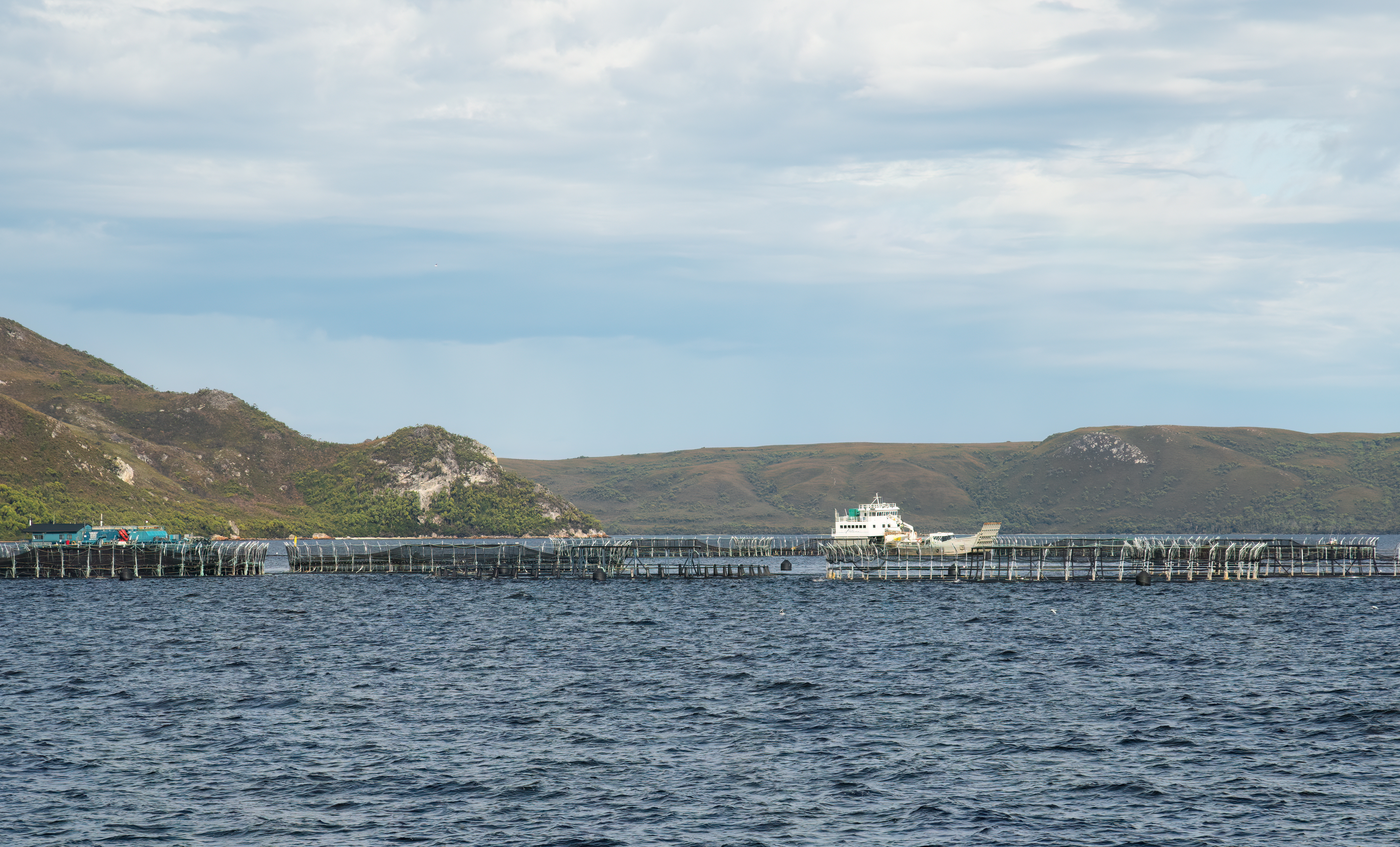Oxygenation project at Macquarie Harbour gets underway

Scientists working on a project to restore oxygen levels in Macquarie Harbour, Tasmania say the first stage has proved to be a success.
The Macquarie Harbour Oxygenation Project (MHOP) aims to tackle the problem of low dissolved oxygen levels in the Harbour, a large indented lagoon, roughly 33 km long by 9 km wide, and with a 276 sq km surface area, which is estimated to be six times the size of Sydney Harbour. A narrow entrance linking the lagoon to the open sea means water circulation is limited.
This body of water typically has low levels of oxygen, but in recent years the problem has become more acute, threatening not only the farmed salmon there but also an endangered wild fish species, the Maugean skate.
Environmental campaigners blamed overstocking by fish farms for the falling oxygen levels, but an extensive study by marine scientists concluded that Macquarie Harbour has an intrinsic problem. It is stratified into distinct layers of water with different characteristics, with a top layer relatively rich in oxygen, a deeper layer which is more depleted and a middle layer which is even more oxygen-poor.
To try and remediate the lagoon, MHOP was set by the Tasmanian salmon aquaculture industry in partnership with Tasmania’s Institute of Marine & Antarctic Science (IMAS), and the Australian Government’ Fisheries Research & Development Corporation (FRDC).

Maugean skate
Blowing bubbles
Following a successful fit out, the MHOP research team and salmon companies have moored an oxygenation barge in place. In initial trials the barge has been drawing water from the sea at depth. Highly concentrated micro and nano bubbles of oxygen are then injected into that water, before releasing it back into the deeper water sections of the Harbour, elevating dissolved oxygen levels through passive diffusion and natural mixing.
Dr Jeff Ross, Associate Professor, at the Institute for Marine and Antarctic Studies (IMAS) said: “Installation of the scientific monitoring and sensor operations over the past two weeks have been very productive. We have a live sensor array and live deck and underwater cameras operating and despite some initial teething issues with pump operations, which we have now overcome, the oxygenation looked good on camera with no evidence of too much vertical movement of the plume or bubbles.
“The provisional plan where we pumped 500kg/day for three days has gone very well. We will now increase this to 720kg/day over the weekend, take a breather before the next trial so we can process and digest the environmental and performance data and we then expect to progressively increase both the oxygen dosage and duration over the coming trials.”
Salmon Tasmania CEO, Luke Martin, said: “We are the one industry that is showing leadership in responding to the threats to the skate amongst a myriad of inputs into the Harbour and we are proud of the teams of scientists and operational crews who are leading the charge.
“The project will cost upward of AUS $7m [£3.6m] over the next two years and represents the industry’s major contribution to the Maugean Skate Conservation Recovery Plan. We stand up for a responsible and science led aquaculture industry that is so critical to Tasmania’s economy and hundreds of Tasmanian families.
“Our objective is to test whether the MHOP could form part of a long-term strategy to improve the Macquarie Harbour environment for the skate, while responding to the challenge of warming waters and other climatic factors.
“At a minimum, we aim to offset the total oxygen drawdown of our own salmon aquaculture activities in the Harbour, and further reduce the impact of our operations on the environment.”
“Whilst initial trials will use diesel to run the equipment, 100% of diesel used will be offset through carbon initiatives and once proven, we will be seeking a long-term renewable energy source.”
Martin added: “With farmed salmon being one of the world’s most carbon friendly proteins, the importance of the success of our industry should not be understated.”

Salmon farm, Macquarie Harbour, Tasmania

